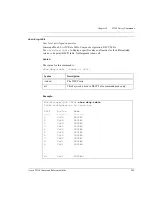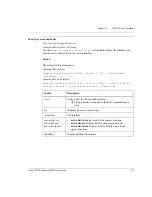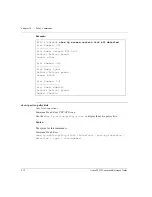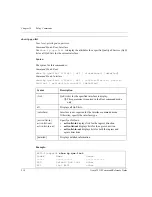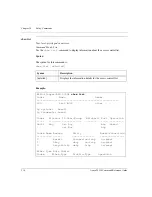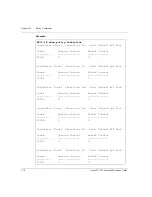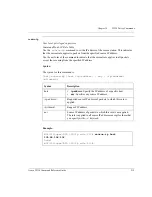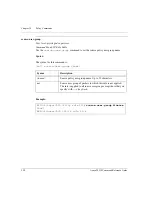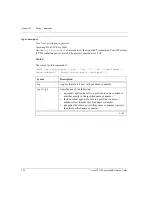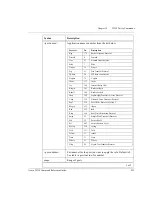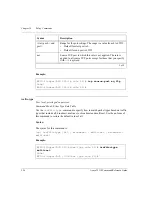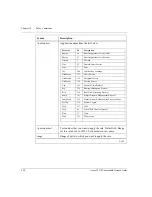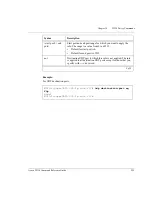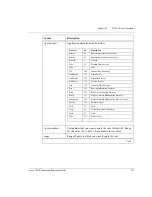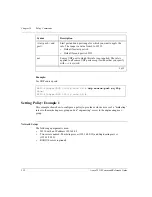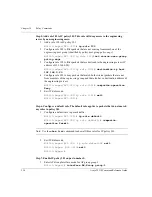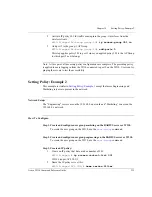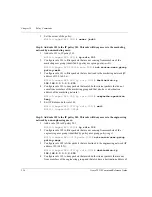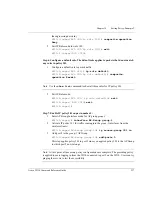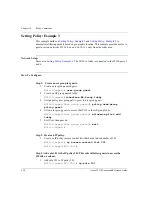
Chapter 10
W310 Policy Commands
Avaya W310 Command Reference Guide
223
Example:
tcp-established
User level: privileged, supervisor.
Command Mode: IP Rule Table
Use the
tcp-established
command to specify that the current rule applies only to
packets that are part of an established TCP session. Use the no form of the command to
specify that the current rule applies to any TCP packets.
Syntax:
The syntax for this command is:
[no] tcp-established
Example:
<start port> <end
port>
Range for the port settings. The range is a value from 0 to 65535.
•
Default for start port is 0.
•
Default for end port is 65535.
not
Destination TCP port to which this rule is
not
applied. The rule is
applied to all destination TCP ports except for those that you
specify with
not
keyword.
W310-1(super/ACL 330/ip rule 21)#
tcp destination-port eq
ftp
Done!
W310-1(super/ACL 330/ip rule 21)#
W310-1(super/ACL 330/ip rule 21)#
tcp-established
Rule protocol changed.
Done!
W310-1(super/ACL 330/ip rule 21)#
Syntax
Description
3 of 3
Summary of Contents for W310
Page 1: ...Avaya W310 WLAN Gateway Command Reference Guide Document No 21 300040 Issue 1 March 31 2004 ...
Page 16: ...Contents xii Avaya W310 Command Reference Guide ...
Page 82: ...Chapter 6 IP Commands 66 Avaya W310 Command Reference Guide ...
Page 102: ...Chapter 7 Layer 2 Switching Commands 86 Avaya W310 Command Reference Guide ...
Page 160: ...Chapter 8 LAP and Radio Card Commands 144 Avaya W310 Command Reference Guide ...
Page 194: ...Chapter 9 Logging and RMON Commands 178 Avaya W310 Command Reference Guide ...
Page 264: ...Chapter 10 Policy Commands 248 Avaya W310 Command Reference Guide ...
Page 350: ...Chapter 13 SNMP Commands 334 Avaya W310 Command Reference Guide ...
Page 376: ...Chapter 15 SSID Commands 360 Avaya W310 Command Reference Guide ...
Page 430: ...Chapter 18 User User Group and RADIUS Commands 414 Avaya W310 Command Reference Guide ...
Page 434: ...Chapter 19 Wireless Domain Commands 418 Avaya W310 Command Reference Guide ...

